Royksopp – Melody A.M.
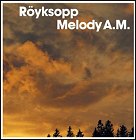 This is one of those things that just sounds so unlikely the first time someone mentions it to you – oh, it’s a lounge/dance music outfit from Norway, you’ll love it. Sure, whatever, you think, and a couple of months after hearing it, you’ve got a copy of the bloody thing sitting on your CD shelf. Royksopp is actually a duo, though in this case it’s a duo of musical hermit crabs, both adept enough in studio trickery to make themselves sound like a full band, and sometimes more.
This is one of those things that just sounds so unlikely the first time someone mentions it to you – oh, it’s a lounge/dance music outfit from Norway, you’ll love it. Sure, whatever, you think, and a couple of months after hearing it, you’ve got a copy of the bloody thing sitting on your CD shelf. Royksopp is actually a duo, though in this case it’s a duo of musical hermit crabs, both adept enough in studio trickery to make themselves sound like a full band, and sometimes more.
The hook that really drew me into this CD was “Royksopp’s Night Out”, a quirky mock-orchestral instrumental which sounds like maybe it’s trying to be something grand and epic…and then sounds like maybe it’s just been pulling your leg from the word go. There’s something here that reminds me of Alan Parsons’ best instrumental pieces, both in terms of execution/style and song length, and it always grabs me. In a good way.
Running a close second on my favorites list for this album is the light vocal dance number “Remind Me”, a less elaborate tune which is still catchy, and sounds like it’s been sent forward in time from the early 80s new wave/new romantic movement. Musically, it’s exceedingly simple – a verse of the vocal, followed by a keyboard echoing the same melody note for note, and nothing ever really resolves into something you could definitively call a chorus. But it’s hooky enough to reel me in for repeated listens.
Other highlights include the smoky, jazzy female vocal of “Sparks”, and the trippy rhythms of “So Easy” and “Epie”. Aside from the Alan Parsons instrumentals, Melody A.M. also reminds me of Art Of Noise’s adventurous Seduction Of Claude Debussy, an album I’ve grown to appreciate much more since I initially reviewed it.
 Melody A.M. is an album that just about anyone could find enjoyable, even if only one or two songs grab them immediately, and Royksopp is just one fortuitous inclusion in the soundtrack of a movie, TV show or commercial away from getting some massive exposure. But you can beat the rush and check them out early – this is some good stuff.
Melody A.M. is an album that just about anyone could find enjoyable, even if only one or two songs grab them immediately, and Royksopp is just one fortuitous inclusion in the soundtrack of a movie, TV show or commercial away from getting some massive exposure. But you can beat the rush and check them out early – this is some good stuff.
- So Easy (4:10)
- Epie (6:14)
- Sparks (5:27)
- In Space (3:33)
- Poor Leno (4:00)
- Higher Place (4:33)
- Royksopp’s Night Out (7:33)
- Remind Me (3:41)
- She’s So (5:24)
- 40 Years Back \ Come (4:45)
Released by: Wall Of Sound
Release date: 2002
Total running time: 49:22

Xevious 3D/G+
Not really a soundtrack in the strictest sense, this is – like Namco Classics Collection before it – a collection of remixes of background music as heard in Namco’s 3-D update of the classic Xevious arcade game. In many cases, you won’t hear any correlation whatsoever to the music that’s heard in the game – it’s been reworked that much.
Sometimes, as in the mesmerizing “Area 1: MLO Deep Pan Mix”, this is just fine. There are quite a few tracks on here which have an almost hypnotic effect – overall, pretty good standard-issue trance. But the lead  track, “Area 7: Happy-Go-Lucky Mix”, is worthy of skipping every time – it sounds like it’s trying to find a whimsical tone, and it winds up being more annoying than anything.
track, “Area 7: Happy-Go-Lucky Mix”, is worthy of skipping every time – it sounds like it’s trying to find a whimsical tone, and it winds up being more annoying than anything.
It may have precious little to do with Xevious, but it’s not a bad listen in and of itself.
- Area 7: Happy-Go Lucky Mix mixed by SPAG (6:04)
- Area 4: Liquid Groove Mix mixed by SPAG (6:15)
- Boss 4: NP Mix mixed by SPAG (4:35)
- Area 1: MLO Deep Pan Mix remixed by MLO (8:43)
- Boss 7: Berserker’s Fat Beat Mix remixed by Berserker (6:38)
- Ending Movie: The Wax Head Mix remixed by The Hypnotist (7:57)
- Opening Movie: Dub Struck remixed by The Hypnotist (8:37)
- Area 5: Overhead Noise Mix remixed by Overhead Noise (17:20)
- Untitled Hidden Track #1 (6:14)
- Untitled Hidden Track #2 (4:27)
Released by: Pony Canyon
Release date: 1999
Total running time: 76:52
Electric Light Orchestra – ELO II (Remaster)
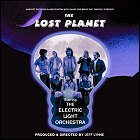
 Originally devised as a band that would “pick up where the ‘Beatles’ I Am The Walrus’ left off,” the Electric Light Orchestra was well on its way to carving out its own admittedly unconventional niche when the band’s leadership was split down the middle. Stunned by the sudden defection of founding member Roy Wood, Jeff Lynne and company regrouped, brought in a few more players, and kept the band’s original mandate – a rock group with its own live string section – intact. The result, in 1972, was two vinyl sides of beauty running the gamut from heavy metal to near-classical rock to ballads. Now, some 31 years later, the result is two full-length CDs of that same beauty and then some.
Originally devised as a band that would “pick up where the ‘Beatles’ I Am The Walrus’ left off,” the Electric Light Orchestra was well on its way to carving out its own admittedly unconventional niche when the band’s leadership was split down the middle. Stunned by the sudden defection of founding member Roy Wood, Jeff Lynne and company regrouped, brought in a few more players, and kept the band’s original mandate – a rock group with its own live string section – intact. The result, in 1972, was two vinyl sides of beauty running the gamut from heavy metal to near-classical rock to ballads. Now, some 31 years later, the result is two full-length CDs of that same beauty and then some.
The original album – only five songs in all, but some of them epic-length – is a wonder to hear in this newly remastered edition, and the early takes of songs like “Ma-Ma-Ma Belle” and “Dreaming Of 4000” (intended for the group’s third album) are revealing looks at those tunes’ evolution. But the real treat here is a handful of songs we’d never heard before, with the jewel in that particular crown being “Everybody’s Born To Die”, a very surprisingly Dylan-esque number that makes one think that Jeff Lynne listened to “Like A Rolling Stone” for inspiration (both musical and lyrical) and then concocted his own uniquely ELO-ified electric folk song. The quality of the recording is such that it sounds like it could’ve been recorded yesterday, and despite it being a Dylan pastiche, it’s at least a good Dylan pastiche. It’s also a marvel to hear in a raw, un-adorned form; had it progressed far enough to be included on ELO II or On The Third Day, chances are the vocals would’ve been echoed, double-tracked, or otherwise messed with. Here we get to hear the raw power of Jeff Lynne belting this song out with no electronic trickery.
I was less enthralled with the three numbers featuring former Move lead singer Carl Wayne on vocals. With the ELO rhythm section of Lynne, Bev Bevan, Mike de Albuquerque and Richard Tandy backing him, Wayne croons three Lynne originals (including a string-free cover of “Mama”). Conflicting with earlier news that Lynne had attempted to recruit Wayne to replace Roy Wood in ELO, the liner notes explain that manager Don Arden hooked Wayne up with Lynne in an attempt to break Wayne’s “cabaret crooning” image to relaunch his stalled rock career. Even if that’s the case, it wasn’t much of a mold-breaker – it really comes across in the style of early 70s Christian rock more than anything. If Carl Wayne needed a direction, I much preferred the hard-psychedelic-rock re-interpretations of several standards on the latter half of the Move’s Shazam, but it’s still interesting to hear what else the members of ELO (and the Move) were doing on the side.
I also have to admit to enjoying the wealth of material in the two liner notes booklets: we finally have printed lyrics for this album, and the press reviews from the time of the album’s release are insightful and hilarious. John Peel’s review of the “Roll Over Beethoven” single in particular cracks me up for two passages: “The strings, rocking like bitches, play sort of ghost-train evil” and “If it is not a number one, I shall come among you with a whip.” Now that’s a music review! I’ll make sure to use the latter of these two memorable phrases in a future review, and perhaps the first if the opportunity should present itself.
 Sadly, this is probably the last of the ELO remastered albums, due to budget constraints and copyright issues still persisting from the band’s early switches from one label to another, but even so, what a way to go out.
Sadly, this is probably the last of the ELO remastered albums, due to budget constraints and copyright issues still persisting from the band’s early switches from one label to another, but even so, what a way to go out.
I don’t suppose walking among the Sony Music brass with a whip would help to resurrect the reissues, would it?
Disc one:
- In Old England Town (Boogie No. 2) (6:57)
- Momma… (7:00)
- Roll Over Beethoven (7:04)
- From The Sun To The World (Boogie No. 1) (8:18)
- Kuiama (11:21)
- Showdown (4:11)
- In Old England Town (Instrumental) (2:44)
- Baby I Apologise (3:43)
- Auntie (Ma Ma Ma Belle, take 1) (1:19)
- Auntie (Ma Ma Ma Belle, take 2) (4:03)
- Mambo (Dreaming Of 4000, take 1) (3:03)
- Everyone’s Born To Die (4:40)
- Roll Over Beethoven (take 1) (8:16)
Disc two:
- Brian Matthew introduces ELO (0:22)
- From The Sun To The World (Boogie No. 1 – BBC Sessions) (7:26)
- Momma (BBC Sessions) (6:57)
- Roll Over Beethoven (single version) (4:36)
- Showdown (take 1) (4:18)
- Your World (with Carl Wayne – take 2) (4:55)
- Get A Hold Of Myself (with Carl Wayne – take 2) (4:43)
- Mama (with Carl Wayne – take 1) (4:59)
- Wilf’s Solo (instrumental) (3:40)
- Roll Over Beethoven (BBC Sessions) (7:40)
Released by: EMI/Harvest
Release date: 2003
Disc one total running time: 74:41
Disc two total running time: 49:38
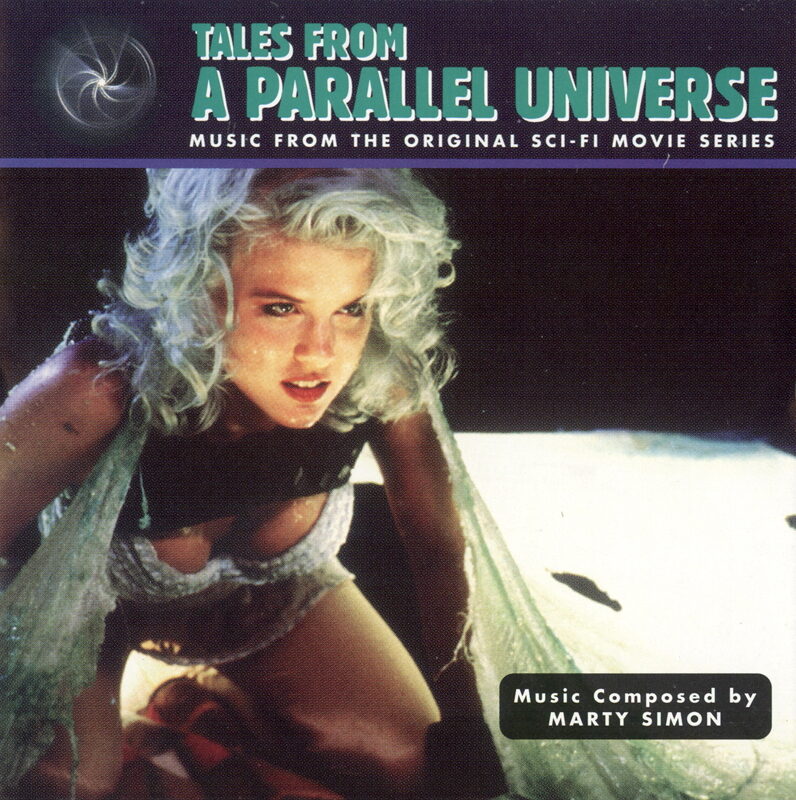
Tales From A Parallel Universe
 In a weird way, Lexx shares a kind of musical heritage with Classic Star Trek – a “library” approach to its original musical score which involved certain pieces cropping up again and again in certain situations. And much like the original Star Trek, I’d begrudge that re-use more if it weren’t for the fact that the original pieces in question are so strong.
In a weird way, Lexx shares a kind of musical heritage with Classic Star Trek – a “library” approach to its original musical score which involved certain pieces cropping up again and again in certain situations. And much like the original Star Trek, I’d begrudge that re-use more if it weren’t for the fact that the original pieces in question are so strong.
Tales From A Parallel Universe (the title of the US release; elsewhere, as with the series that spawned it, the CD is simply titled Lexx) consists of the four made-for-TV movies that comprised Lexx’s first “season”, and the universe-building pilot movie, I Worship His Shadow, is the source of the best music that the series ever had to offer. Bucking a lot of cinematic scoring sensibilities, composer Marty Simon throws everything into the stew for I Worship His Shadow: hard rock guitar licks, dance club synths, operatic vocals, silky saxophone and brooding orchestral menace. Sure, it’s probably all sampled or synthesized, but it’s done so well that pieces like “Prisoner Transport” and “Welcome To The Dark Zone” withstand repeated listening (not to mention repeated play throughout the series; the latter track is used as the end credit music for every episode from season two onward; in fact, the basic melodies of every theme song Lexx ever had can be found on this disc if you listen carefully). The synth-orchestral-choral mix and echoing guitar riffs give the series’ sound an epic but yet playful kick.
Keeping in mind that this music is from a series of movies, there’s no one consistent theme running through everything, but there is a consistent style – and in some ways, that lack of a traditional TV soundtrack structure is used to tremendous effect here music is juxtaposed with the occasional soundbyte from the  movies (but nothing excessive, certainly nothing on the level of the between-every-song banter from the Apollo 13 soundtrack, for example).
movies (but nothing excessive, certainly nothing on the level of the between-every-song banter from the Apollo 13 soundtrack, for example).
It’s sad that this one has gone out of print and has become a creature of the used music market. It really is very good.
- Cluster Anthem (0:37)
- Prisoner Transport (2:06)
- Snake Chase (3:35)
- Welcome To The Dark Zone (0:56)
- Battle Of The Universe (1:07)
- Planet Cruise (2:46)
- Poet Man (3:52)
- Cryochamber (4:01)
- Love Muscle (1:50)
- Gigashadow March (2:57)
- Yo-A-O (Fight Song of the Brunnen-G) (0:50)
- The Lexx Escape (2:31)
- Zev’s Shower (3:15)
- Cleric Theme (2:31)
- Kai Collapse (5:16)
- Shadows And Prophets (8:57)
- Feppo’s Party (3:18)
- Milk Fed Boys (0:54)
- Brunnis (2:21)
- Fantasy Dance (2:17)
- Moth Ride (2:26)
Released by: Varese Sarabande
Release date: 1997
Total running time: 58:20
Blue Man Group – The Complex
 So, Blue Man Group’s going to do an album with lyrics, eh? A rock album no less! But fear not – the Blues haven’t sold out. If anything, The Complex expands their repertoire in a way that keeps even their seasoned, long-time fans on their toes, and demonstrates that their distinctive instrumental sound can serve as the core of some great rock music.
So, Blue Man Group’s going to do an album with lyrics, eh? A rock album no less! But fear not – the Blues haven’t sold out. If anything, The Complex expands their repertoire in a way that keeps even their seasoned, long-time fans on their toes, and demonstrates that their distinctive instrumental sound can serve as the core of some great rock music.
The songs are everything from straight-ahead rockers to low-key alt-rock numbers, and some wild surprises. Did you ever think you’d hear Blue Man Group covering Jefferson Airplane’s “White Rabbit” or Blondie’s “I Feel Love”? Show of hands? Didn’t think so. And yet they do, with a melding of their own style and deft tributes to the original (with guest vocalist Esthero making “Rabbit” her own and paying homage to Grace Slick, if that’s not too much of a contradiction; Venus Hum waxes a bit more trippy on the “I Feel Love”). The Blues don’t do any singing themselves, instead inviting others to come in and play in their playground, including Dave Matthews and Tracy Bonham.
It’s Bonham’s turn at the microphone that gives The Complex one of its two most distinctive and powerful numbers, “Up To The Roof”, a great meld of confessional lyrics, passionate vocals and an amazing hard rockin’ chorus. You can hear the Blue Man Group sound underneath it all, and yet it’s more than just their sound – it’s a whole new canvas they’re exploring. The other big breakout number is the headbang-worthy “The Current”, with guest vocalist Gavin Rossdale providing a low-key counterpoint to the slammin’ guitar riff of the chorus. (As unlikely as Blue Man Group seemed for inclusion on the Terminator 3 soundtrack, “The Current” was an inspired choice for their contribution.)
As much as I liked their instrumental work in Audio – and there are still plenty of their trademark instrumentals to be  found on The Complex, including a few that rework some of Audio‘s better passages into the group’s new sound – this album is an evolution they had to make if limiting themselves to the sonic medium. I can’t say enough complimentary things about it that’ll make sense without you hearing it for yourself – highly recommended, and one of my favorite albums of the year.
found on The Complex, including a few that rework some of Audio‘s better passages into the group’s new sound – this album is an evolution they had to make if limiting themselves to the sonic medium. I can’t say enough complimentary things about it that’ll make sense without you hearing it for yourself – highly recommended, and one of my favorite albums of the year.
- Above (4:07)
- Time To Start (4:13)
- Sing Along (4:14)
- Up To The Roof (4:29)
- Your Attention (4:37)
- Persona (3:25)
- Piano Smasher (3:57)
- White Rabbit (5:02)
- The Current (5:28)
- I Feel Love (3:13)
- Shadows Part 2 (3:53)
- What Is Rock (3:21)
- The Complex (3:53)
- Exhibit 13 (3:57)
- Mandelbro7 (3:53)
Released by: Lava
Release date: 2003
Total running time: 61:44
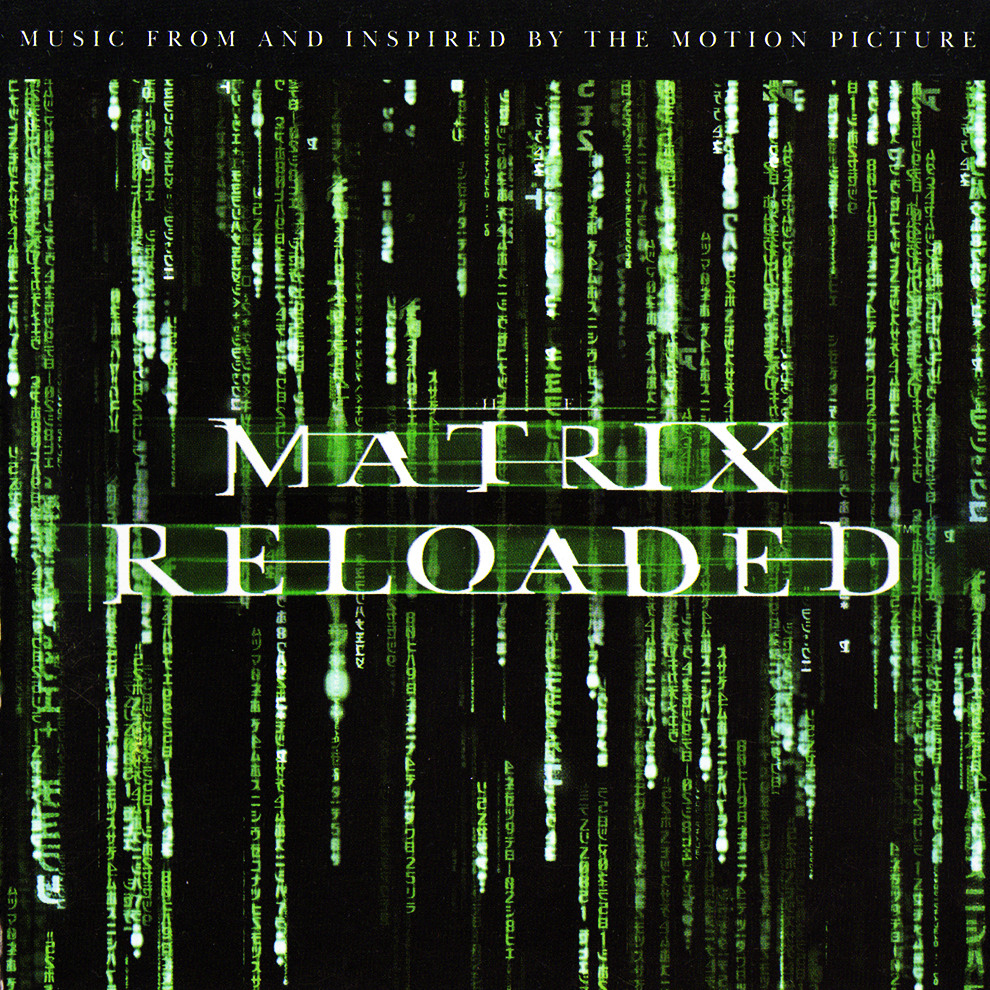
The Matrix Reloaded
 A curious two-disc offering, the soundtrack from The Matrix Reloaded combines the usual from-or-inspired-by-the-movie cocktail of songs on disc one, and instrumental score tracks on disc two (though there are some instrumentals on the first disc that accompanied some of the movie’s more atmospheric moments, namely Rob Dougan’s “Furious Angel” and Fluke’s “Zion”. I hope no one will be really upset if I only touch on the former and spend more time with the latter. I don’t have a problem with the techno and hardcore death metal pieces on the first disc, but it’s just not the kind of stuff that keeps me coming back.
A curious two-disc offering, the soundtrack from The Matrix Reloaded combines the usual from-or-inspired-by-the-movie cocktail of songs on disc one, and instrumental score tracks on disc two (though there are some instrumentals on the first disc that accompanied some of the movie’s more atmospheric moments, namely Rob Dougan’s “Furious Angel” and Fluke’s “Zion”. I hope no one will be really upset if I only touch on the former and spend more time with the latter. I don’t have a problem with the techno and hardcore death metal pieces on the first disc, but it’s just not the kind of stuff that keeps me coming back.
Disc two is the real meat, however, for those of us looking for the score – and the original score album must not have sold all that well, because it looks like this is as close as we’re getting to a score album this time. The traditional Matrix opening – virtually identical to the opening of original movie – is followed by “Trinity Dream”, an action scene whose music screams “something’s going wrong here” as Neo gets his first premonition of Trinity’s fate.
Techno group Juno Reactor – with whom I’m most impressed and may indeed check out their own non-movie works – joins forces with Gocoo for “Teahouse”, the busy eastern-flavored percussion-fest that we hear as Neo fends off the Oracle’s protector blow-for-blow. Not just one of my favorite scenes, but also one of the better selections from the soundtrack. If this doesn’t make you want to get up and do something – run a few blocks, do some kung fu, or what have you – you’ve obviously misfired your CD changer and were listening to Wayne Newton instead. This track will make you want to get up and do something, trust me.
My favorite track on either disc, however, is “Burly Brawl” – a track I grew to love about a month before seeing the movie or knowing where it fell in the story. Big action, big beats, big fun, and those usual choral-and-orchestral interludes that go with Neo flagrantly disobeying all known laws of physics. The track gets positively frenzied toward the end, almost comically so, but it’s all good – and wouldn’t you know it, the Neo/Smith fight wound up being my favorite action setpiece in the whole film, perhaps in part because this music was there.
The second disc ends on a lengthy suite of more subtle instrumental cues, all very nice and intriguing, but…it’s 20 minutes long! The remainder of the disc is taken up by video previews of the Enter The Matrix video game.
 A nice package, though I might have been just as happy buying a single CD of the score and leaving the songtrack half of this collection to those who were more inclined toward that style of music – though it’s hard to complain at the single-CD price, and it has convinced me to check out Rob Dougan’s Furious Angels album. Ahhh…the power of cross-marketing.
A nice package, though I might have been just as happy buying a single CD of the score and leaving the songtrack half of this collection to those who were more inclined toward that style of music – though it’s hard to complain at the single-CD price, and it has convinced me to check out Rob Dougan’s Furious Angels album. Ahhh…the power of cross-marketing.
Disc one
- Linkin Park – Session (2:25)
- Marilyn Manson – This Is The New Shit (4:21)
- Rob Zombie – Reload (4:27)
- Rob Dougan – Furious Angels (5:32)
- Deftones – Lucky You (4:10)
- Team Sleep – The Passportal (2:57)
- P.O.D. – Sleeping Awake (3:28)
- Unloco – Bruises (2:38)
- Rage Against The Machine – Calm Like A Bomb (5:00)
- Oakenfold – Dread Rock (4:42)
- Fluke – Zion (4:35)
- Dave Matthews Band – When The World Ends (Oakenfold Remix) (5:26)
Disc two
- Don Davis – Main Title (1:32)
- Don Davis – Trinity Dream (1:58)
- Juno Reactor featuring Gocoo – Teahouse (1:06)
- Rob Dougan – Chateau (3:25)
- Juno Reactor & Don Davis – Mona Lisa Overdrive (10:11)
- Juno Reactor vs. Don Davis – Burly Brawl (5:54)
- Don Davis – Matrix Reloaded Suite (17:35)
Released by: Warner Bros.
Release date: 2003
Disc one total running time: 49:49
Disc two total running time: 41:41
Lennon Legend: The Very Best Of John Lennon
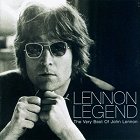 If George Harrison is my favorite Beatle, who’s number two? If I’m to be honest, I can’t choose between Paul McCartney and John Lennon. Each has his own strenghts: McCartney is unequaled when it comes to ballads and beguiling melodies, but if I want something more akin to straight-ahead rock ‘n’ roll, I’ve got to go with John. Sometime back, I traded in my copy of Double Fantasy and got Lennon Legend instead, and it was definitely a trade up, eliminating the need to skip every other track. I’m not one of these Beatles fanboys who rants endlessly about Yoko Ono breaking up the band, I just don’t like her voice or her music on their own merits. Lennon Legend alleviates the elaborate CD player programming required to skip Yoko’s stuff, since it’s all of John’s best. Still my all-time favorite Lennon tune is one of my personal theme songs from the soundtrack of my life, “Watching The Wheels”, though “Nobody Told Me” runs a close second in favorites from John’s post-Beatles repertoire. He occasionally gets a little bit out there (“#9 Dream”, anyone?), but he’s still got his rock ‘n’ roll chops with “(Just Like) Starting Over” and even gives McCartney a run for his balladeer money with “Woman”. And overplayed as it is, and as frequently misread from a lyrical standpoint as it is, I still have to admit that it’s hard to beat “Imagine” or “Jealous Guy” (I’ve always been a huge fan of the latter especially).
If George Harrison is my favorite Beatle, who’s number two? If I’m to be honest, I can’t choose between Paul McCartney and John Lennon. Each has his own strenghts: McCartney is unequaled when it comes to ballads and beguiling melodies, but if I want something more akin to straight-ahead rock ‘n’ roll, I’ve got to go with John. Sometime back, I traded in my copy of Double Fantasy and got Lennon Legend instead, and it was definitely a trade up, eliminating the need to skip every other track. I’m not one of these Beatles fanboys who rants endlessly about Yoko Ono breaking up the band, I just don’t like her voice or her music on their own merits. Lennon Legend alleviates the elaborate CD player programming required to skip Yoko’s stuff, since it’s all of John’s best. Still my all-time favorite Lennon tune is one of my personal theme songs from the soundtrack of my life, “Watching The Wheels”, though “Nobody Told Me” runs a close second in favorites from John’s post-Beatles repertoire. He occasionally gets a little bit out there (“#9 Dream”, anyone?), but he’s still got his rock ‘n’ roll chops with “(Just Like) Starting Over” and even gives McCartney a run for his balladeer money with “Woman”. And overplayed as it is, and as frequently misread from a lyrical standpoint as it is, I still have to admit that it’s hard to beat “Imagine” or “Jealous Guy” (I’ve always been a huge fan of the latter especially).
So is there any Lennon that I don’t like? Believe it or not, I skip “Give Peace A Chance” almost every time I put this disc in the player. Nor am I partial to “Whatever Gets You Through The Night”, but I can still listen to it; to this day I’m convinced that “Peace” is forever included in Lennon’s best-of collections more for its historical curiosity value, and its association with the man and his views, than for its musical worth. Great sentiment, perhaps a decent song…not the best performance, though.
Still, a solid collection on which you’re almost certain to find something that you liked back in the days when it was getting steady radio airplay (perhaps even before Lennon’s death, if you’re as old as I am or older), and maybe something new to like as well.
As critical as I am of Double Fantasy, by the way, it does have its value musically. Once, a couple of jobs ago, I was trying to bring something to my boss’ attention but he was busy schmoozing on a seemingly  endless network conference call. So, before leaving the second floor to go about my business, I calmly reversed my CD track programming to play only the Yoko Ono tracks on Double Fantasy, cranked the office stereo, and quietly walked downstairs. I can still hear the anguished shouts and screams from the second floor to this day.
endless network conference call. So, before leaving the second floor to go about my business, I calmly reversed my CD track programming to play only the Yoko Ono tracks on Double Fantasy, cranked the office stereo, and quietly walked downstairs. I can still hear the anguished shouts and screams from the second floor to this day.
- Imagine (3:04)
- Instant Karma! (3:21)
- Mother (3:56)
- Jealous Guy (4:16)
- Power To The People (3:20)
- Cold Turkey (5:01)
- Love (3:24)
- Mind Games (4:14)
- Whatever Gets You Through The Night (3:21)
- #9 Dream (4:48)
- Stand By Me (3:29)
- (Just Like) Starting Over (3:56)
- Woman (3:28)
- Beautiful Boy (Darling Boy) (4:02)
- Watching The Wheels (3:33)
- Nobody Told Me (3:35)
- Borrowed Time (4:31)
- Working Class Hero (3:52)
- Happy Xmas (War Is Over) (3:35)
- Give Peace A Chance (4:52)
Released by: EMI/Parlophone
Release date: 1997
Total running time: 77:38
Yes – Highlights
 As much as I like some acts which could be considered progressive rock (Alan Parsons, early ELO, and so on), I’ve got to fess up to something: I’ve never quite gotten as “into it” as some diehard prog-rock fans. I’m more of a popster, so sometimes the big league prog stuff like early Yes or Emerson Lake & Palmer leave me a bit cold. Not that I doubt the musicianship of the people involved, but it’s just not the style of music that I feel like spending a lot of time with. If I want long, epic pieces, I tend to go orchestral.
As much as I like some acts which could be considered progressive rock (Alan Parsons, early ELO, and so on), I’ve got to fess up to something: I’ve never quite gotten as “into it” as some diehard prog-rock fans. I’m more of a popster, so sometimes the big league prog stuff like early Yes or Emerson Lake & Palmer leave me a bit cold. Not that I doubt the musicianship of the people involved, but it’s just not the style of music that I feel like spending a lot of time with. If I want long, epic pieces, I tend to go orchestral.
But damned if I don’t like me some early Yes from time to time. Remember the Wayne’s World scene where Wayne, Garth and friends are banging their heads in time to Queen’s “Bohemian Rhapsody”? I’ve been known to do something similar with “Roundabout”. And fortunately for me, there’s Highlights, a nice little one-disc selection of remastered material from a Yes box set that, while I’m sure the fans dug it, relly amounted to too much of a financial commitment for a casual fan like myself. Highlights is about all the prog-rock I need: sort of a prog-rock hot pocket which surveys the band’s career from those gloriously overblown AM radio epics of the early ’70s to their more accessible ’80s material.
Well, more accessible to me, anyway. “Owner Of A Lonely Heart” was a high water mark for Yes’s public profile as well as the early (and far more innovative) MTV era; that song also has the curious distinction of helping to launch the career of a whole other entity, as producer Trevor Horn took the sound of the now-immortal sampled horn break and ran with it to create the Art of Noise. I’ve also always had a sneaking liking for “Leave  It”, which dispenses with some of “Owner”‘s studio flash in favor of a great song with incredible vocal harmonies, a description which could be equally applied to “Rhythm Of Love”.
It”, which dispenses with some of “Owner”‘s studio flash in favor of a great song with incredible vocal harmonies, a description which could be equally applied to “Rhythm Of Love”.
So perhaps what I need here is a Yes ’80s collection. But then again, maybe not. My life just wouldn’t be the same without the occasional psychedelic headbanging session set to the tune of “Roundabout”.
- Survival (6:18)
- Time And A Word (4:31)
- Starship Trooper (9:26)
- I’ve Seen All Good People (6:55)
- Roundabout (8:31)
- Long Distance Runaround (3:33)
- Soon (4:06)
- Wonderous Stories (3:45)
- Going For The One (5:32)
- Owner Of A Lonely Heart (4:27)
- Leave It (4:10)
- Rhythm Of Love (4:46)
Released by: Atlantic
Release date: 1993
Total running time: 66:00
Bill Mumy – Dying To Be Heard
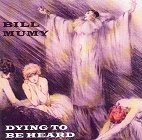 You may know him as Lennier or Will Robinson or that creepy kid who cropped up again after 40 years in the Twilight Zone, but Bill Mumy’s also a more than capable musician, as demonstrated by this early solo effort.
You may know him as Lennier or Will Robinson or that creepy kid who cropped up again after 40 years in the Twilight Zone, but Bill Mumy’s also a more than capable musician, as demonstrated by this early solo effort.
It’s easy to say that Dylan is a prominent influence on Mumy’s own brand of singwriting, but think electric Dylan here. Mumy lets loose with some wailing electric guitar work in the background of his folky tunes. “Ambiguous Sky / Monte” is not only the best example of this electric-era Dylan influence, but it’s a catchy song with a very Dylanesque lyric. But Mumy isn’t just paying homage to Bob Dylan for the whole running time of the CD – at other times, he backs off of the electrics and goes for a feel-good folky sound, as with “My Sweet Seleena”. Other highlights include “Our Beautiful Life” and “Yes You In The Blue”.
And finally, you may laugh at the thought of Mumy penning a heartfelt, somber tune called “The Ballad Of William Robinson”, but don’t you dare laugh. It’s the crowning jewel of Dying To Be Heard, and actually puts a mature spin on Mumy’s adolescent Lost In Space character, updating us on what has happened to the Robinson family since their last televised adventures. The performance is outstanding, it’s some of Mumy’s best singing, and the whole song is built around a positively mesmerizing guitar lick with some equally hypnotic (and appropriately spaced-out) keyboard backing courtesy of Mumy’s son Seth. A must-listen, whether you liked the song’s inspiration or not.
 It’s a pity that Bill Mumy isn’t the musical superstar he deserves to be. I applaud his acting talents, and I’ve always enjoyed them, but sometimes I think his screen fame has shafted him when it comes to getting his music taken seriously. Just about any Bill Mumy album will help you recover from the notion that every actor’s musical ambitions must necessarily culminate in a disaster of Golden Throats proportions. I highly recommend this one to you.
It’s a pity that Bill Mumy isn’t the musical superstar he deserves to be. I applaud his acting talents, and I’ve always enjoyed them, but sometimes I think his screen fame has shafted him when it comes to getting his music taken seriously. Just about any Bill Mumy album will help you recover from the notion that every actor’s musical ambitions must necessarily culminate in a disaster of Golden Throats proportions. I highly recommend this one to you.
- Nero’s Fiddle (4:03)
- My Sweet Seleena (3:51)
- Ambiguous Sky / Monte (6:08)
- In The Grand Scheme Of Things (3:27)
- Dying To Be Heard (3:35)
- Our Beautiful Life (5:42)
- Yes You In The Blue (5:14)
- Waiting (Little Seattle Junkie) (7:48)
- Denver Thing (3:19)
- I Know We All Go (2:27)
- The Ballad Of William Robinson (3:35)
Released by: Renaissance Records
Release date: 1997
Total running time: 51:52
Konami Game Music Volume 1
 I previously griped a bit about Taito Game Music, a CD which I liked despite its shortcomings but really couldn’t see recommending to a general audience. Well, as it turns out, some of the same problems rear their heads with Konami Game Music Volume 1, but those problems are tempered by one thing: generally, Konami’s 80s arcade games had more music than Taito’s, lending themselves more readily to a release like this.
I previously griped a bit about Taito Game Music, a CD which I liked despite its shortcomings but really couldn’t see recommending to a general audience. Well, as it turns out, some of the same problems rear their heads with Konami Game Music Volume 1, but those problems are tempered by one thing: generally, Konami’s 80s arcade games had more music than Taito’s, lending themselves more readily to a release like this.
Covered in this first volume of Konami coin-op audio tributes are Gyruss (whose techno take on Bach’s “Tocatta And Fugue In B Minor” was the first video game music ever presented in stereo), the original and arrangement versions of Twin Bee and Gradius, music and effects from Pooyan, Time Pilot, Yie Ar Kung-Fu, Roc ‘N’ Rope and a Japan-only release, Kekkyoku Nankyoku Daiboken. All strictly 80s goodness.
 The sound transfers, as usual, are phenomenal, but all the difference is made when one tries to do this with games which had music to begin with. Gyruss and Time Pilot are personal favorites of mine in this department, and there’s no doubt that you’ll probably dig others that have memories attached to them for you as well. Good stuff, but still something for only the biggest video game fans.
The sound transfers, as usual, are phenomenal, but all the difference is made when one tries to do this with games which had music to begin with. Gyruss and Time Pilot are personal favorites of mine in this department, and there’s no doubt that you’ll probably dig others that have memories attached to them for you as well. Good stuff, but still something for only the biggest video game fans.
Twinbee
- Credit – Start BGM (Stage99) (0:10)
- Twinbee’s Home Town Song BGM (Game BGM 1) (0:19)
- Power Up – Fantastic Powers (1:05)
- Boss BGM1 – Clear (0:45)
- Boss BGM2 – Stage Clear – Extend (0:54)
- Warning – Boss BGM3 – Game Over (0:52)
- Normal Ranking (0:18)
- Top Ranking (0:26)
Kekkyoku Nankyoku Daiboken
- BGM (1:15)
Gradius Arrange Version
- Beginning Of The History – Challenger 1985 – Free Flyer (4:44)
Gyruss
- Gyruss BGM (3:02)
Roc ‘N’ Rope
- Game Start (0:10)
- BGM1 (0:56)
- BGM2 (0:54)
- BGM3 (0:53)
- BGM4 (0:59)
Yie Ar Kung Fu
- Game Start (0:09)
- BGM (1:02)
- Game End (0:36)
Gradius
- Credit – Beginning Of The History (0:24)
- Challenger 1985 (0:47)
- Beat Bank (0:17)
- Blank Mask (0:22)
- Free Flyer (0:46)
- Mazed Music (0:18)
- Mechanical Globule (0:33)
- Final Attack (0:24)
- Aircraft Carrier (0:16)
- Game Over (0:05)
- Ranking (0:21)
- BGM (0:53)
Pooyan
- Game Start (0:13)
- BGM1 (0:52)
- BGM2 (1:02)
- BGM3 (0:53)
- BGM4 (0:04)
- BGM5 (0:41)
Time Pilot
- BGM1 (0:10)
- BGM2 (1:18)
Twinbee Arrange Version
- Twinbee’s Home Town Song – Game Over – Normal Ranking (4:54)
Released by: Scitron Digital
Release date: 2000
Total running time: 35:24
Paul McCartney – All The Best
 Some people seem to take inordinate delight in downplaying Paul McCartney’s contributions to pop music, especially in his post-Beatles years. But I ask you: who can listen to “Coming Up”, “My Love” or “No More Lonely Nights” and say that Paul was past his prime when he coined these tunes? Forever doomed to be widely regarded as the cute, irreverent half of the Lennon/McCartney songwriting powerhouse, McCartney has always been capable of putting that perception to rest with his ballads. (C’mon, we are talking about the man chiefly responsible for “Hey Jude” and “Yesterday”.) Now, there are some tracks on here that do a lot to give McCartney’s solo portfolio that “cute, irreverent” label (I’m thinking “Band On The Run” and especially “Uncle Albert / Admiral Halsey” – a song that some people refer to as “Hands Across The Water” – here), and a few that seem to go a bit far in trying to correct that perception (“Live And Let Die”) – but criticism of the lyrics aside, I still like just about everything on this collection.
Some people seem to take inordinate delight in downplaying Paul McCartney’s contributions to pop music, especially in his post-Beatles years. But I ask you: who can listen to “Coming Up”, “My Love” or “No More Lonely Nights” and say that Paul was past his prime when he coined these tunes? Forever doomed to be widely regarded as the cute, irreverent half of the Lennon/McCartney songwriting powerhouse, McCartney has always been capable of putting that perception to rest with his ballads. (C’mon, we are talking about the man chiefly responsible for “Hey Jude” and “Yesterday”.) Now, there are some tracks on here that do a lot to give McCartney’s solo portfolio that “cute, irreverent” label (I’m thinking “Band On The Run” and especially “Uncle Albert / Admiral Halsey” – a song that some people refer to as “Hands Across The Water” – here), and a few that seem to go a bit far in trying to correct that perception (“Live And Let Die”) – but criticism of the lyrics aside, I still like just about everything on this collection.
It’s sad that Paul’s output and his chart-topping streak have come to a juddering halt in recent years – though I loved Flaming Pie – and this greatest hits disc is sorely in need of updating (thinking mainly of “The World Tonight” from Flaming Pie and “My Brave Face” here). But on its own, All My Best  puts the lie to the notion that Paul didn’t go anywhere after the Fab Four fell apart. Corny as some of them may seem now, all of these songs are appealing, and serve as a reminder that they were, after all, written by one half of the most successful songwriting duo in chart history. They may not have been number one with a bullet, but they did at least have wings.
puts the lie to the notion that Paul didn’t go anywhere after the Fab Four fell apart. Corny as some of them may seem now, all of these songs are appealing, and serve as a reminder that they were, after all, written by one half of the most successful songwriting duo in chart history. They may not have been number one with a bullet, but they did at least have wings.
- Band On The Run (5:14)
- Jet (4:10)
- Ebony And Ivory (3:43)
- Listen To What The Man Said (3:57)
- No More Lonely Nights (4:41)
- Silly Love Songs (5:56)
- Let ‘Em In (5:11)
- Say Say Say (3:56)
- Live And Let Die (3:14)
- Another Day (3:43)
- C Moon (4:35)
- Junior’s Farm (4:23)
- Uncle Albert / Admiral Halsey (4:42)
- Coming Up (3:31)
- Goodnight Tonight (4:21)
- With A Little Luck (3:14)
- My Love (4:09)
Released by: Capitol
Release date: 1987
Total running time: 72:40
Home Cookin’ – Mmm, Mmm, Mmm
 A snapshot of Home Cookin’ at the height of its funk-with-a-live-horn-section greatness, Mmm, Mmm, Mmm may not make a big splash with those who weren’t there when this kind of music was all over the radio. For those of us who did grow up in the ’70s, this is the big, orchestrated sound of funky soul, and it was good to find someone still keeping that alive in the ’90s. Had A Feelin’ and Home Cookin’s signature single “X-Rated Superstar” may well be the best examples of that sound on here. “All Talk” soft-pedals the funk elements in favor of an almost Caribbean sound complete with steel drums, while “Golden Rule” has a nice simple message about not treating people badly – a neat little number that puts Home Cookin’s pedigree as purveyors of true ’70s-style feel-good soul on proud display.
A snapshot of Home Cookin’ at the height of its funk-with-a-live-horn-section greatness, Mmm, Mmm, Mmm may not make a big splash with those who weren’t there when this kind of music was all over the radio. For those of us who did grow up in the ’70s, this is the big, orchestrated sound of funky soul, and it was good to find someone still keeping that alive in the ’90s. Had A Feelin’ and Home Cookin’s signature single “X-Rated Superstar” may well be the best examples of that sound on here. “All Talk” soft-pedals the funk elements in favor of an almost Caribbean sound complete with steel drums, while “Golden Rule” has a nice simple message about not treating people badly – a neat little number that puts Home Cookin’s pedigree as purveyors of true ’70s-style feel-good soul on proud display.
In the wake of the band’s break-up, many of the rhythm section players have reformed as Mo’ Friction, and while I’m sure they’re at the top of their game, there was nothing quite like Home Cookin’ blasting away at full  volume with a real live horn section. Sure, maybe it made the band large, top-heavy and hard to keep together as a unit, but that sound – you know, the one we rarely hear these days outside of modern acts sampling the hell out of real vintage ’70s soul – has almost got to be worth the logistical headaches. And if only for that sound, I miss Home Cookin’. Maybe we need a reunion gig or two, guys?
volume with a real live horn section. Sure, maybe it made the band large, top-heavy and hard to keep together as a unit, but that sound – you know, the one we rarely hear these days outside of modern acts sampling the hell out of real vintage ’70s soul – has almost got to be worth the logistical headaches. And if only for that sound, I miss Home Cookin’. Maybe we need a reunion gig or two, guys?
- X-Rated Superstar (3:34)
- Hold Tight (3:08)
- Against The Grain (3:10)
- All Talk (2:38)
- Somebody (2:54)
- Needle’s Sting (4:15)
- Golden Rule (4:54)
- Had A Feelin’ (4:41)
- Soul Space Express (4:17)
- Words (3:27)
- Rock It Man (4:48)
- Cricket (3:40)
- Shine It On (4:17)
- Second Guess (4:56)
Released by: Fly Records
Release date: 1997
Total running time: 54:39
Pete Yorn – Day I Forgot
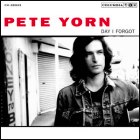 It was almost inevitable that Pete Yorn would suffer a bit of a sophomore slump with Day I Forgot, his followup to musicforthemorningafter – if I started raving about Day I Forgot as much as I did about the last album, you’d probably suspect me of being on the Yorn payroll. But “not being as good as one of Dave’s Damn Near Perfect albums” is not all that penetrating a review, so I feel compelled to say a little bit more on behalf of what is, in its own right, a fine musical achievement.
It was almost inevitable that Pete Yorn would suffer a bit of a sophomore slump with Day I Forgot, his followup to musicforthemorningafter – if I started raving about Day I Forgot as much as I did about the last album, you’d probably suspect me of being on the Yorn payroll. But “not being as good as one of Dave’s Damn Near Perfect albums” is not all that penetrating a review, so I feel compelled to say a little bit more on behalf of what is, in its own right, a fine musical achievement.
The songwriting skills that first hooked me on Yorn are still in evidence on this album. More importantly, he and partner R. Walt Vincent show a ton of talent for building a song from layer after layer of instruments. The best songs on Day I Forgot build momentum from an enthusiastic point-counterpoint duel between numerous guitars, percussion, keyboards, and whatever else they could find in the studio to make some noise. That Yorn and Vincent play most of them while co-producing most of the tracks is almost enough to qualify them as a tandem musical hermit crab. They do have some able help, such as mixers and occasional co-producers Andy Wallace and Scott Litt. R.E.M.’s Peter Buck even shows up to play mandolin on one track, further confirming the man’s good taste.
My three favorite songs on the album are all up-tempo rockers, although only Burrito has the boundless energy of Life On A Chain. I simply can not not move when I hear this song, and I only wish it were longer than 2:45. “Crystal Village” and “Committed” are both a little more sedate, a little more clearly bittersweet, but they are excellent songs. I was listening to “Crystal Village” on headphones, and there’s an acoustic guitar part sort of buried in the right channel that just worms its way into your brain and doesn’t let go. The umpteen other guitars on top just echo and build on that small part to create a great listening experience. “Committed” is just…I don’t have the words for this song. There’s a very specific emotion that this song just captures, a sort of resigned acceptance of life’s pitfalls mixed with the realization that life’s still pretty darned good.
 I want to rate this album at three, because it’s on the short side and a couple of the songs are merely OK. But the good songs are SO good – I was holding my one-year-old daughter while listening to “Committed”, and tears starting streaming down my face. Anything that can move me in such a fashion has to get a top score, but be aware that especially in this case, your mileage may vary.
I want to rate this album at three, because it’s on the short side and a couple of the songs are merely OK. But the good songs are SO good – I was holding my one-year-old daughter while listening to “Committed”, and tears starting streaming down my face. Anything that can move me in such a fashion has to get a top score, but be aware that especially in this case, your mileage may vary.
- Intro (0:47)
- Come Back Down (3:24)
- Crystal Village (3:46)
- Carlos (Don’t Let It Go To Your Head) (3:29)
- Pass Me By (3:51)
- Committed (3:29)
- Long Way Down (3:38)
- When You See the Light (2:43)
- Turn Of The Century (3:03)
- Burrito (2:45)
- Man In Uniform (2:41)
- All At Once (4:04)
- So Much Work (4:47 – technically, this is track 14)
Released by: Columbia
Release date: 2003
Total running time: 42:44
Afro Celts (Afro Celt Sound System) – Seed
 So, according to the press blurb, the Afro Celt Sound System shed the “sound system” portion of its name because the band is refocusing on a more organic, acoustic sound. Yes, that’s why their new album opens with a vocoder-and-synth solo, because they want to sound more natural. In all seriousness, though, the “more acoustic” claims aren’t entirely unfounded. What they’re talking about is a more audible presence for some excellent and decidedly non-electric guitar in many of the ten new songs. It may not seem like this would make a huge difference, but you’d be surprised.
So, according to the press blurb, the Afro Celt Sound System shed the “sound system” portion of its name because the band is refocusing on a more organic, acoustic sound. Yes, that’s why their new album opens with a vocoder-and-synth solo, because they want to sound more natural. In all seriousness, though, the “more acoustic” claims aren’t entirely unfounded. What they’re talking about is a more audible presence for some excellent and decidedly non-electric guitar in many of the ten new songs. It may not seem like this would make a huge difference, but you’d be surprised.
Other than that, the band’s sound is largely the same. Where their third CD Further In Time found the Afro Celts trying to reach for a world music fusion that seemed to reach well beyond the ethnic implications of the band’s name, and it was a truly lovely thing to behold. With Seed, they come down unquestionably on the “Celt” side of Afro Celt, and while the polyrhythms are still present, the focus this time around is definitely on the Irish sound. Not that this is a bad thing, mind you.
The album’s first two tracks remain my favorites, despite the incongruity of “Cyberia”‘s “more acoustic” vocoder opening. The title track is a sweeping epic along the lines of Further In Time‘s “Lagan”, another favorite of mine. The guest vocalists this time around aren’t quite the high-profile rock legends that the group welcomed on their previous album, but that’s okay too. It may just be that the band has found a sound that could get some attention and airplay without the publicity stunt of a famous voice in front of the mix.
guest vocalists this time around aren’t quite the high-profile rock legends that the group welcomed on their previous album, but that’s okay too. It may just be that the band has found a sound that could get some attention and airplay without the publicity stunt of a famous voice in front of the mix.
Excellent stuff, even if I do keep calling them the Afro Celt Sound System.

- Cyberia (7:41)
- Seed (6:25)
- Nevermore (4:45)
- The Other Side (7:01)
- Ayub’s Song / As You Were (7:32)
- Rise (3:07)
- Rise Above It (10:11)
- Deep Channel (6:48)
- All Remains (7:30)
- Green [Nevermore instrumental] (5:57)
Released by: RealWorld
Release date: 2003
Total running time: 67:00
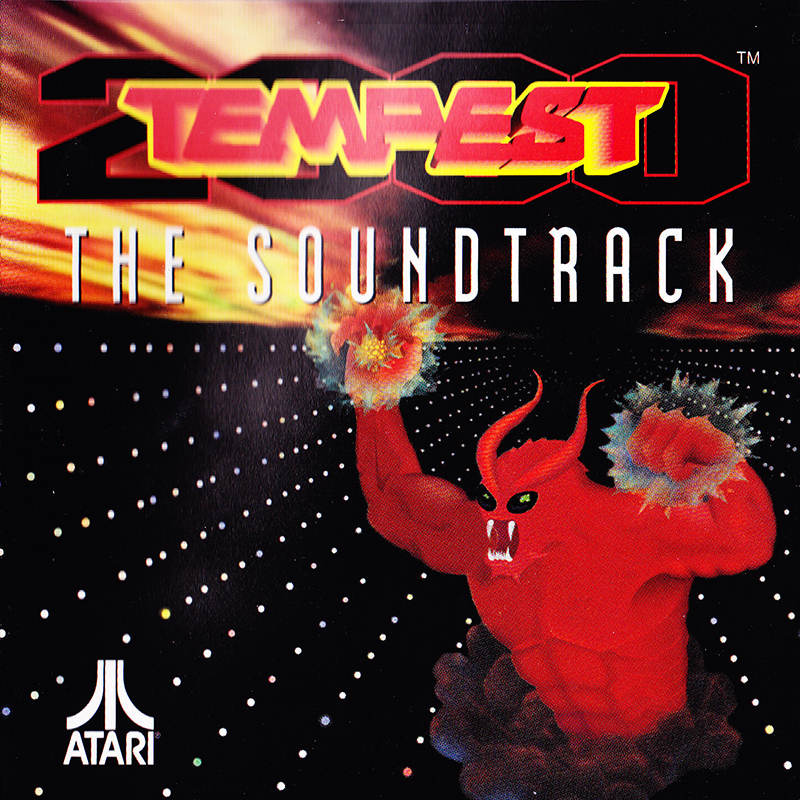
Tempest 2000
In 1994, programmer Jeff Minter had a bright idea: Atari, then still in business under its own steam, and still looking for hot games to thrust its troubled Jaguar video game console into the limelight, should revive one of its arcade classics, Tempest, with some modern game play elements and a new look. Minter handed Atari Tempest 2000 (later ported to the Playstation as Tempest X3), which is about as close to a “killer app” game as the Jaguar got. Among the many changes made to the original Tempest format was the addition of a thumping techno soundtrack (the original 1981 arcade game had no music at all). Before long, Atari had received enough praise for the music that an audio CD version of it was prepared as a premium item.
As with quite a bit of techno (and, for the zillionth time, I ask: why does it seem like 95% of all video games are set to techno music these days?), some of the tracks are so interchangeable that one can be forgiven for not realizing that one track’s ended and another has begun. That said, the Tempest 2000 soundtrack doesn’t continually lumber around the “thundering” end of the spectrum, giving us a few lighter, trance-like tracks in keeping with the game’s mind-blowingly colorful light show. There is actually some welcome contrast among the tracks.
 Now out of print, Tempest 2000 (the soundtrack, not the game) is a bit of a collector’s item, but don’t hock the car to get it – in their attempt to try to generate crossover appeal to the music market (and admittedly, this was being done at a time when this genre of music wasn’t really mainstream yet), Atari pressed a lot of these suckers. It isn’t too hard to find one.
Now out of print, Tempest 2000 (the soundtrack, not the game) is a bit of a collector’s item, but don’t hock the car to get it – in their attempt to try to generate crossover appeal to the music market (and admittedly, this was being done at a time when this genre of music wasn’t really mainstream yet), Atari pressed a lot of these suckers. It isn’t too hard to find one.
- Thermal Resolution (3:59)
- Mind’s Eye (4:52)
- T2K (5:23)
- Ease Yourself (7:52)
- Tracking Depth (5:04)
- Constructive Demolition (4:05)
- Future Tense (5:54)
- Digital Terror (5:07)
- Hyper Prism (4:26)
- Glide Control (5:12)
- Ultra Yak (4:00)
- 2000 Dub (7:31)
Released by: Atari / Interplay
Release date: 1994
Total running time: 63:25
Duran Duran – Decade
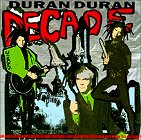 With a little bit of trepidation, I popped the retrospective collection of Duran Duran’s first ten years of hits into the CD player one night, only to come away from it with a reminder of how much I liked Duran Duran’s early stuff.
With a little bit of trepidation, I popped the retrospective collection of Duran Duran’s first ten years of hits into the CD player one night, only to come away from it with a reminder of how much I liked Duran Duran’s early stuff.
A lot of the material on Decade had the privelege of radio running it so far into the ground that it pierced the crust, rammed through the mantle, and continued playing right into the core of the planet. But with the benefit of time, hindsight and giving it a shot at an unbiased listen, it’s easy to see why – Duran Duran’s early singles were catchy as hell, loaded with new wave vibes, funky basslines, hard-edged guitar licks, and some of the best vocal harmonies anyone was doing in the early 80s. Period.
Naturally, the singles from Rio dominate the first half of the CD, but it was with “Is There Something I Should Know?” and “Union Of The Snake” that I was reminded of just how good Duran Duran could be when firing on all cylinders. Those songs are catchy enough to be repeat-track material. I still think Le Bon and company reached their apex with the Bond movie theme song “A View To A Kill”, which out of necessity (and tradition) elevated the production style to a slightly more epic level. I’ll probably get lynched by some McCartney fans for saying this, but it’s as good a Bond movie tune as “Live And Let Die” (in fact, upon further reflection, I think I like “A View To A Kill” better).
Sadly, what happened after that didn’t quite hold my attention.
The later songs didn’t grab me as much as their earlier efforts, with attempts to branch out in new directions. “Notorious” lived up to its name by just not doing it for me – it went into Chic-style territory that INXS had already more than adequately revisited by that time. Likewise, I always found the faux-jazzy “Skin Trade” irritating. “I Don’t Want Your Love” was almost a return to form, but almost made them sound like a  boy band. “All She Wants Is” gets things back on track, so naturally the album ends there.
boy band. “All She Wants Is” gets things back on track, so naturally the album ends there.
For all their attempts to reform and hit it big again, perhaps Duran Duran would do well to take a quick refresher course in how they made it into the spotlight in the first place – they’ve never gotten back to sounding this good.
- Planet Earth (4:07)
- Girls On Film (3:30)
- Hungry Like The Wolf (3:25)
- Rio (5:38)
- Save A Prayer (5:33)
- Is There Something I Should Know? (4:05)
- Union Of The Snake (4:20)
- The Reflex (4:25)
- Wild Boys (4:16)
- A View To A Kill (3:33)
- Notorious (3:58)
- Skin Trade (4:25)
- I Don’t Want Your Love (3:47)
- All She Wants Is (4:36)
Released by: Capitol
Release date: 1989
Total running time: 59:38
10cc – The Very Best Of 10cc
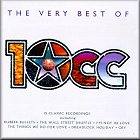 What do you get with a band that seems to be equal parts Beatles influence and comedic irony? That would be 10cc, and those looking for an entry-level crash course into the band’s history could hardly ask for better than The Very Best Of, covering the British group’s six-year career and following it up with some material from alumni Godley & Creme.
What do you get with a band that seems to be equal parts Beatles influence and comedic irony? That would be 10cc, and those looking for an entry-level crash course into the band’s history could hardly ask for better than The Very Best Of, covering the British group’s six-year career and following it up with some material from alumni Godley & Creme.
10cc’s most offbeat material has always been what appealed to me most about the group, and most of their better efforts can be found here, including “Rubber Bullets”, “Life Is A Minestrone”, “I’m Not In Love”, and a healthy helping of songs from Deceptive Bends, their biggest-selling album (which has already been reviewed here). There are some other tunes which don’t quite do it for me (you’d think, being the vocal harmony fanatic that I am, that I’d dig “I’m Mandy Fly Me”, but for some reason I’ve never really gotten to like that one), but at the very least it’s a decent grouping of the band’s best material.
I’m a little torn about the decision to cap the collection off with Godley & Creme’s “Cry” – it seems a bit like  tagging a Wings song onto a Beatles compilation to me – especially when Godley & Creme’s “History Mix” would’ve been more apt, combining “Cry” with several 10cc chestnuts in a bit of techno mega-mix – it seems to me that this would’ve been a more relevant track. But as fond as people are of “Cry”, I can see why it was included. Overall, a solid slice of 10cc.
tagging a Wings song onto a Beatles compilation to me – especially when Godley & Creme’s “History Mix” would’ve been more apt, combining “Cry” with several 10cc chestnuts in a bit of techno mega-mix – it seems to me that this would’ve been a more relevant track. But as fond as people are of “Cry”, I can see why it was included. Overall, a solid slice of 10cc.
- Donna (2:54)
- Rubber Bullets (5:17)
- The Dean And I (3:03)
- The Wall Street Shuffle (3:52)
- Sully Love (3:57)
- Life Is A Minestrone (4:40)
- I’m Not In Love (6:05)
- Art For Art’s Sake (5:52)
- I’m Mandy Fly Me (5:20)
- The Things We Do For Love (3:31)
- Good Morning Judge (2:53)
- People In Love (3:45)
- Dreadlock Holiday (4:59)
- For You And I (5:18)
- Cry (3:55)
Released by: Mercury
Release date: 1997
Total running time: 65:21
Frank Klepacki – Morphscape
 After seven years of churning out the hard-hitting accompaniment for Electronic Arts’ Command & Conquer series of real-time strategy games (among others) and releasing over half a dozen albums’ worth of material attached to computer games, not to mention stints with Las Vegas bands like Home Cookin’ and Mo’ Friction, Frank Klepacki is flying solo – and proving there’s more to his repertoire than being EA’s own C&C music factory. Klepacki flexes his signature funk-techno muscle on such tracks as “Defunkt” and “Freaks From Within”, but delves into some new territory, including lounge music and even the glorious vintage ’70s throwback that is “Gonna Rock Yo Body”. In a true tribute to the roller disco era, “Rock Yo Body” features “robotic” vocoder-processed vocals, synth-string stabs, and the kind of cheesy electronic percussion you’d expect from the late ’70s and early ’80s. And the beauty of it is, it works. If you, like me, grew up during that era…this song will give you a thrill of recognition and a goofy grin. It’s good cheese, a nice little trip back to the day when Grandmaster Flash was considered new, not old-school. “Gonna Rock Yo Body” is an unlikely candidate for the best song on the whole CD, but if you’re already acquainted with Frank Klepacki’s body of game work, this track should jump out and grab you because it demonstrates what he can do outside of that genre. “Mode One” shifts into new wave gear with an ever-so-slight nod in the direction of early, pre-drenched-with-samples Depeche Mode. By the end of the album, you’ve gotten to hear so many styles and distinctive pieces that you’re not left thinking “Hey, this stuff all sounds exactly like
After seven years of churning out the hard-hitting accompaniment for Electronic Arts’ Command & Conquer series of real-time strategy games (among others) and releasing over half a dozen albums’ worth of material attached to computer games, not to mention stints with Las Vegas bands like Home Cookin’ and Mo’ Friction, Frank Klepacki is flying solo – and proving there’s more to his repertoire than being EA’s own C&C music factory. Klepacki flexes his signature funk-techno muscle on such tracks as “Defunkt” and “Freaks From Within”, but delves into some new territory, including lounge music and even the glorious vintage ’70s throwback that is “Gonna Rock Yo Body”. In a true tribute to the roller disco era, “Rock Yo Body” features “robotic” vocoder-processed vocals, synth-string stabs, and the kind of cheesy electronic percussion you’d expect from the late ’70s and early ’80s. And the beauty of it is, it works. If you, like me, grew up during that era…this song will give you a thrill of recognition and a goofy grin. It’s good cheese, a nice little trip back to the day when Grandmaster Flash was considered new, not old-school. “Gonna Rock Yo Body” is an unlikely candidate for the best song on the whole CD, but if you’re already acquainted with Frank Klepacki’s body of game work, this track should jump out and grab you because it demonstrates what he can do outside of that genre. “Mode One” shifts into new wave gear with an ever-so-slight nod in the direction of early, pre-drenched-with-samples Depeche Mode. By the end of the album, you’ve gotten to hear so many styles and distinctive pieces that you’re not left thinking “Hey, this stuff all sounds exactly like  Command & Conquer!”
Command & Conquer!”
I’ve been lobbying for someone to tap Frank Klepacki for something more than just a short film, and I still think someone should. But he won’t hear me complain if he keeps turning out solo material too, because Morphscape rocks.
- Morphscape (5:21)
- Blaster (4:43)
- Freaks From Within (5:08)
- Cybertek (3:12)
- Mode One (4:03)
- Gonna Rock Yo Body (3:23)
- Cosmic Lounge (5:12)
- Morphunk (3:47)
- Defunkt (2:42)
- Virus (4:47)
Released by: FrankKlepacki.com
Release date: 2002
Total running time: 42:18
The Zombies – Begin Here
 One can be forgiven for sometimes thinking that the post-Beatles British invasion bands were a dime a dozen, but every once in a while one emerged which kept itself afloat on the power of its own prodigious talents. Some, like The Move, spread their wings immediately and mixed deft Fab Four homages with experimenation in other styles. The Zombies, however, stayed a bit closer to home, sticking fast to the beat group parameters and even borrowing some of the Beatles’ trademark maneuvers, such as covering old blues tunes (including “You’ve Really Got A Hold On Me”, a Smokey Robinson classic which had already been appropriated by the Beatles). But it’s sometimes easy to overlook that the Zombies had their own dynamic duo in the form of Rod Argent (later of Argent) and Colin Blunstone (who, among other solo and session work, has done guest lead vocals for the Alan Parsons Project). While some of the Zombies’ material sometimes washes into the background of Beatles imitators, there are some bright gems which singled them out for praise.
One can be forgiven for sometimes thinking that the post-Beatles British invasion bands were a dime a dozen, but every once in a while one emerged which kept itself afloat on the power of its own prodigious talents. Some, like The Move, spread their wings immediately and mixed deft Fab Four homages with experimenation in other styles. The Zombies, however, stayed a bit closer to home, sticking fast to the beat group parameters and even borrowing some of the Beatles’ trademark maneuvers, such as covering old blues tunes (including “You’ve Really Got A Hold On Me”, a Smokey Robinson classic which had already been appropriated by the Beatles). But it’s sometimes easy to overlook that the Zombies had their own dynamic duo in the form of Rod Argent (later of Argent) and Colin Blunstone (who, among other solo and session work, has done guest lead vocals for the Alan Parsons Project). While some of the Zombies’ material sometimes washes into the background of Beatles imitators, there are some bright gems which singled them out for praise.
Chief among these is jangling lament of “She’s Not There”, a song with a brooding verse, a driving chorus, and great minor key harmonies that distinguished it from the sunnier beat numbers of the mid 60s. The more laid-back “Tell Her No” has also become an oldies radio chestnut. Some of the Zombies’ other early numbers are less familiar (who remembers “I Got My Mojo Working”?), but those two singles paved the way for a career that, while brief, afforded them a more worthy status than just Beatles wanna-bes. Argent later formed a group named after himself and gave us the 70s rock anthem “Hold Your Head Up”, and in the late 1990s reunited as a  duo with Blunstone for a successful UK tour and a subsequent studio album. Not everything on Begin Here will trip your trigger – I’ll admit that I really only listen to it for three or four songs, and the “bonus material” of two demos and two alternate takes are of negligible value to all but the most serious fans. But that’s just it – it was a beginning, and a promising one at that.
duo with Blunstone for a successful UK tour and a subsequent studio album. Not everything on Begin Here will trip your trigger – I’ll admit that I really only listen to it for three or four songs, and the “bonus material” of two demos and two alternate takes are of negligible value to all but the most serious fans. But that’s just it – it was a beginning, and a promising one at that.
- Road Runner (2:07)
- Summertime (2:18)
- I Can’t Make Up My Mind (2:33)
- The Way I Feel Inside (1:51)
- Work ‘N’ Play (2:09)
- You’ve Really Got A Hold On Me / Bring It On Home To Me (3:40)
- She’s Not There (2:25)
- Sticks And Stones (2:57)
- Can’t Nobody Love You (2:16)
- Woman (2:28)
- I Don’t Want To Know (2:07)
- I Remember When I Loved Her (2:01)
- What More Can I Do (1:40)
- I Got My Mojo Working (3:37)
- It’s Alright With Me (1:53)
- Sometimes (2:06)
- Kind Of Girl (2:11)
- Tell Her No (2:08)
- Sticks And Stones – alternate take (3:08)
- It’s Alright With Me – alternate take (1:56)
- I Know She Will – demo (2:28)
- I’ll Keep Trying – demo (2:19)
Released by: Ace Records
Release date: 1998
Total running time: 52:18
Tears For Fears – Tears Roll Down: Greatest Hits, 1982-92
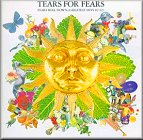 Another of my not-quite-guilty pleasures of the 80s, Tears For Fears has always been one of my favorites from that era. They understood that if you’re going to build your music on a largely electronic palette, you should at least have a decent vocalist to give it some kind of human touch – and few bands around that time could do better than Roland Orzabal.
Another of my not-quite-guilty pleasures of the 80s, Tears For Fears has always been one of my favorites from that era. They understood that if you’re going to build your music on a largely electronic palette, you should at least have a decent vocalist to give it some kind of human touch – and few bands around that time could do better than Roland Orzabal.
This collection picks up with a song which is actually simultaneously atypical and emblematic of the Tears For Fears sound, “Sowing The Seeds Of Love”, which I’m sure everyone remembers from around 1989-90. Like several of the duo’s singles, it got huge radio airplay, so you’re bound to remember the song, even if you don’t remember who did it.
The highlights include “Everybody Wants To Rule The World”, “Head Over Heels”, “Cold Shelter” (my personal favorite of anything the band did while they were in business), “Woman In Chains”, and two songs with some fairly interesting (and psychologically loaded) lyrics, “Tears Roll Down” and “Shout”. A few less prominent selections round things out.
Overall, I found, while listening to this, that I actually miss the Tears For Fears sound. What I miss about the ’80s in general is both the cutting-edge way the music was put together (when synths were relatively new),  and the fact that there seemed to be a sudden influx of songwriters who not only knew what chord progression they wanted their material to follow, but how they wanted it to sound, how they wanted to sing it, and how to use the then-new technology to achieve that. Tears For Fears were masters of that art, and sadly, precious few of the acts who were equally as good are still in circulation.
and the fact that there seemed to be a sudden influx of songwriters who not only knew what chord progression they wanted their material to follow, but how they wanted it to sound, how they wanted to sing it, and how to use the then-new technology to achieve that. Tears For Fears were masters of that art, and sadly, precious few of the acts who were equally as good are still in circulation.
- Sowing The Seeds Of Love (6:19)
- Everybody Wants To Rule The World (4:11)
- Woman In Chains (6:29)
- Shout (6:33)
- Head Over Heels (4:14)
- Mad World (3:29)
- Pale Shelter (4:39)
- I Believe (4:49)
- Laid So Low (Tears Roll Down) (4:44)
- Mother’s Talk (4:59)
- Change (3:54)
- Advice For The Young At Heart (4:54)
Released by: Fontana
Release date: 1992
Total running time: 59:14
Todd Rundgren – The Very Best of Todd Rundgren
 I appreciate very much the fact that the compilers of this best-of collection cop to the fact upfront that the listener’s mileage may vary wildly on what constitutes the best of pop pioneer Todd Rundgren. It’s nice to hear that acknowledged, particularly when you’re dealing with someone whose repertoir varies as wildly as Rundgren’s does.
I appreciate very much the fact that the compilers of this best-of collection cop to the fact upfront that the listener’s mileage may vary wildly on what constitutes the best of pop pioneer Todd Rundgren. It’s nice to hear that acknowledged, particularly when you’re dealing with someone whose repertoir varies as wildly as Rundgren’s does.
That admission aside, the collection is somewhat predictably heavy with material from Rundgren’s early opus Something/Anything?, including the radio hits “Hello, It’s Me” and “I Saw The Light”. A selection of solo hits and songs performed with Utopia follows, with a few surprising inclusions (“Just One Victory” and one of my personal favorites, “Something To Fall Back On” from his 1985 A Cappella album) along the way. And of course it wouldn’t be a Rundgren compilation without “Can We Still Be Friends”, “Love Is The  Answer” and “Bang On The Drum All Day”.
Answer” and “Bang On The Drum All Day”.
Overall, it’s a solid collection, and essential for anyone who’s fallen under the spell of the current wave of power pop acts (i.e. Jason Falkner, Umajets, etc.) – for they were heavily influenced by the likes of Todd Rundgren.
- We Gotta Get You A Woman (3:10)
- Be Nice To Me (3:25)
- I Saw The Light (3:02)
- Hello It’s Me (4:24)
- Couldn’t I Just Tell You (3:22)
- Just One Victory (5:00)
- A Dream Goes On Forever (2:25)
- Real Man (4:30)
- Love Of The Common Man (3:39)
- Love Is The Answer (4:18)
- Love In Action (3:30)
- Can We Still Be Friends (3:38)
- The Very Last Time (3:53)
- Bang The Drum All Day (3:38)
- Something To Fall Back On (4:17)
- The Want Of A Nail – duet with Bobby Womack (5:14)
Released by: Rhino
Release date: 1997
Total running time: 61:25
Hall & Oates – Rock & Soul, Part I
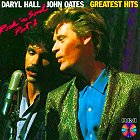 You couldn’t swing a radio dial in the late 70s and early 80s without it hitting a Hall & Oates song. The original purveyors of “white boy soul” – and in many respects still the best – Daryl Hall and John Oates launched a string of hits into the airwaves.
You couldn’t swing a radio dial in the late 70s and early 80s without it hitting a Hall & Oates song. The original purveyors of “white boy soul” – and in many respects still the best – Daryl Hall and John Oates launched a string of hits into the airwaves.
Highlights on this collection include “Sara Smile”, “Kiss On My List”, “You Make My Dreams”, “I Can’t Go For That (No Can Do)” and “One On One” – and those are just the ones I liked. Other hits include “Maneater” and “Private Eyes” (both major chart hits, though they were overplayed to the point where I tend to skip those tracks these days), as well as latter-day hits like “Adult Education” and “Say It Isn’t So”, which never really tripped my trigger like the earlier stuff.
I do, however, have an axe to grind here – how could they leave out the excellent live version of “Everytime You Go Away” from the Live At The Apollo album featuring David Ruffin and Eddie Kendrick!? That was one of the biggest hits Hall & Oates had, and it’s a rare case of a song which, despite radio  overexposure, I still like. The live version of “Wait For Me” is on here, but it’s hardly a substitute. What were they thinking?
overexposure, I still like. The live version of “Wait For Me” is on here, but it’s hardly a substitute. What were they thinking?
Other than that, the oddly-titled Rock ‘n’ Soul Part I is a worthwhile collection – though maybe it’d help if more people knew this was the greatest hits album.
- Say It Isn’t So (4:18)
- Sara Smile (3:10)
- She’s Gone (3:27)
- Rich Girl (2:26)
- Kiss On My List (3:54)
- You Make My Dreams (3:07)
- Private Eyes (3:28)
- Adult Education (5:28)
- I Can’t Go For That (No Can Do) (3:45)
- Maneater (4:33)
- One On One (3:56)
- Wait For Me (live) (6:05)
Released by: RCA
Release date: 1983
Total running time: 47:35
The Swingers – Counting The Beat
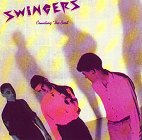 If this album is a good example of anything, it’s a good example of how not to pick the lead track of an album. Counting The Beat is an interesting 1981 set by The Swingers, a band formed by former Split Enz guitarist/vocalist Phil Judd and featuring future Midnight Oil bassist Bones Hillman and guitarist Michael Den Elzen (who later sat in as a session player on Tim Finn’s fourth solo album). The problem with Counting The Beat, however, is wading through the first two tracks before getting to the album’s real meat.
If this album is a good example of anything, it’s a good example of how not to pick the lead track of an album. Counting The Beat is an interesting 1981 set by The Swingers, a band formed by former Split Enz guitarist/vocalist Phil Judd and featuring future Midnight Oil bassist Bones Hillman and guitarist Michael Den Elzen (who later sat in as a session player on Tim Finn’s fourth solo album). The problem with Counting The Beat, however, is wading through the first two tracks before getting to the album’s real meat.
The Swingers sound a lot like Judd’s later band Schnell Fenster, with Judd’s trademark wavering, almost-shouting vocal at the forefront of the group’s sound. Some of the songs here are worth a listen – “Lovesick”, “True Or False”, and “Ayatollah” among them – but something about the first two tracks on the CD (“Practical Joker” and “One Track Mind”) consistently hits me as being unappealing. Others’ mileage may vary, and whether or not you can stomach much of Judd’s vocal style will probably a major factor in whether you like those tracks or, for that matter, the entire album.
Split Enz fans wondering if The Swingers sound anything like that band may or may not find some similarities. Counting The Beat was produced by David Tickle, who helped the Enz cement their sound in the  early ’80s with True Colours, and here it sounds like he’s trying to split the difference between the Enz and the Clash. Sometimes it works…and sometimes it doesn’t.
early ’80s with True Colours, and here it sounds like he’s trying to split the difference between the Enz and the Clash. Sometimes it works…and sometimes it doesn’t.
Overall, a cautious recommendation; it helps if you’ve heard some early Split Enz and perhaps the more melodically inclined (and, frankly, better produced) Schnell Fenster first.
- Practical Joker (3:18)
- One Track Mind (3:46)
- Lovesick (3:47)
- True Or False (4:13)
- More (3:55)
- Counting The Beat (3:04)
- It Ain’t What You Dance It’s The Way You Dance It (3:02)
- Ayatollah (3:39)
- Five O’Clock Shadow (3:43)
- Funny Feeling (3:46)
- Distortion (3:52)
- Hit The Beach (4:01)
- One Good Reason (2:50)
- The Flak (3:41)
Released by: Mushroom
Release date: 1981
Total running time: 50:37
They Might Be Giants – Lincoln
 Some would say that the genius of comedy is knowing when to milk a joke for all it’s worth, and knowing when to get off the stage while the crowd’s still laughing. And though I hesitate to stereotype They Might Be Giants as strictly a comedy act, they do have one part of the mastery of comedy down pat: they know when to stretch a song out or make it short.
Some would say that the genius of comedy is knowing when to milk a joke for all it’s worth, and knowing when to get off the stage while the crowd’s still laughing. And though I hesitate to stereotype They Might Be Giants as strictly a comedy act, they do have one part of the mastery of comedy down pat: they know when to stretch a song out or make it short.
I don’t know whether to weep or cheer about the fact that I’d heard about his band long before they were “the band that does the theme song from Malcolm In The Middle,” before they were even those guys who did “Birdhouse In Your Soul”. In some respects, this stuff is superior to their later works, and it all goes back to that theory about the genius of comedy. Some of the songs, like “Cowtown”, “Mr. Me” and the uproarious “Kiss Me, Son Of God” say what they’re there to say and then get off the stage – or at least out of your ears. Others, like “Lie Still, Little Bottle” and “They’ll Need A Crane” (the funniest breakup song ever), stick around for a little while. And that’s not a bad thing in and of itself – as funny or irreverent as their lyrics may be, Linnell and Flansburgh are impeccable musicians.
 That said, don’t underestimate their lyrics either. Where else will you hear something like “every jumbled pile of person has a thinking part that wonders what the part that isn’t thinking isn’t thinking of”? (Incidentally, that line’s from my favorite song off the album, “Where Your Eyes Don’t Go”.)
That said, don’t underestimate their lyrics either. Where else will you hear something like “every jumbled pile of person has a thinking part that wonders what the part that isn’t thinking isn’t thinking of”? (Incidentally, that line’s from my favorite song off the album, “Where Your Eyes Don’t Go”.)
It’s hard to define exactly what They Might Be Giants is, but I’ll tell you what it isn’t: hard to enjoy. Very highly recommended.
- Ana Ng (3:23)
- Cowtown (2:21)
- Lie Still, Little Bottle (2:06)
- Purple Toupee (2:40)
- Cage & Aquarium (1:10)
- Where Your Eyes Don’t Go (3:06)
- Piece Of Dirt (2:01)
- Mr. Me (1:52)
- Pencil Rain (2:42)
- The World’s Address (2:24)
- I’ve Got A Match (2:37)
- Santa’s Beard (1:56)
- You’ll Miss Me (1:53)
- They’ll Need A Crane (2:34)
- Shoehorn With Teeth (1:13)
- Stand On Your Own Head (1:16)
- Snowball In Hell (2:32)
- Kiss Me, Son Of God (1:53)
Released by: Restless / Bar None
Release date: 1988
Total running time: 39:39
Space Battleship Yamato: The New Voyage
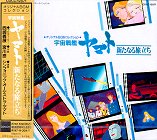 Positioned between the second and third seasons of the legendary animè series, Yamato: The New Voyage was a slightly awkward full-length TV movie which offered only a little bit of expansion on the Space Battleship Yamato franchise – and not much dramatic innovation. As the second theatrical Yamato film had killed off the entire cast of characters (which, after fan outcry, was rectified in the second TV season, which retold the second film’s story without the high body count), The New Voyage had to do a bit of backpedaling, remind the audience that their heroes had not died, but had simply been banged up a bit in their fight against the Comet Empire, and get the ball rolling hastily for yet another showdown with an all-conquering alien force.
Positioned between the second and third seasons of the legendary animè series, Yamato: The New Voyage was a slightly awkward full-length TV movie which offered only a little bit of expansion on the Space Battleship Yamato franchise – and not much dramatic innovation. As the second theatrical Yamato film had killed off the entire cast of characters (which, after fan outcry, was rectified in the second TV season, which retold the second film’s story without the high body count), The New Voyage had to do a bit of backpedaling, remind the audience that their heroes had not died, but had simply been banged up a bit in their fight against the Comet Empire, and get the ball rolling hastily for yet another showdown with an all-conquering alien force.
Cinematically, I’ve never thought The New Voyage was up to much – it lacks the dramatic punch of Be Forever Yamato and even the weak swan song that was Final Yamato – but its music, when heard apart from the movie itself, is a revelation.
Hiroshi Miyagawa’s music is to the Yamato franchise what John Williams’ music is to the Star Wars universe, plain and simple. And in this installment of the saga, Miyagawa brings some new elements into play, including the first major use of synths in his Yamato soundtracks. The modernization of the sound, while quite a departure from what came before it, isn’t unwelcome or out of place. Early on, most of the synth work is relegated to pads underneath a mostly orchestral score.
The real innovation isn’t technological, however, but musical. In The New Voyage, Miyagawa starts to put some of his well-established themes from two previous movies and two years of television series through very interesting permutations. Dessler’s theme (that’s Desslock for you Star Blazers fans) goes from being a strident, militaristic piece to a sweeping, wistful love theme that recurs throughout much of the score. The Yamato theme itself runs through some minor key variations, and one incredibly haunting cue (“Mystical Yamato”) which gives it a very ethereal quality.
 One of the new themes composed specifically for this movie is introduced in the first track as a song (complete with vocals in both Japanese and English), but that motif too reappears in various places. The heraldic brass of the opening track was a huge break in tradition for the series, but it’s a break that was needed by this point. Overall, The New Voyage makes for better listening than viewing.
One of the new themes composed specifically for this movie is introduced in the first track as a song (complete with vocals in both Japanese and English), but that motif too reappears in various places. The heraldic brass of the opening track was a huge break in tradition for the series, but it’s a break that was needed by this point. Overall, The New Voyage makes for better listening than viewing.
- Yamato: The New Voyage (1:50)
- Isao Sasaki (1:42)
- New Voyage – instrumental (2:54)
- Yamato Meditation / Great Love (2:12)
- New Cosmo Tigers (2:29)
- Tsunpa March – March Of The Underwear (0:45)
- Mystical Yamato (2:04)
- Wandering Iscandar (2:10)
- Mamoru and Starsha (2:11)
- Crisis On Iscandar (1:12)
- Desler’s Suffering (1:42)
- Desler In Silence (2:19)
- My Feelings For Starsha (1:51)
- Wandering (2:39)
- Goruba’s Theme (4:17)
- Goruba’s Theme – synthesizer (1:16)
- Goruba’s Theme – piano (1:18)
- Goruba’s Theme – strings (1:35)
- Goruba Chord (0:13)
- Parting – guitar and orchestra (1:54)
- Parting – strings (2:01)
- Parting – piano and orchestra (1:13)
- Parting – guitar solo (3:00)
- Sasha My Love – instrumental (3:49)
- Sasha My Love vocals by Chiyoko Shimakura (1:48)
Released by: Nippon Columbia
Release date: 1995
Total running time: 50:24
Natural History: The Very Best Of Talk Talk
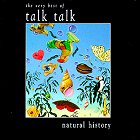 Sometimes I like picking up a one-hit wonder’s “best-of” CD just to see what else they did, especially if I liked the one single of theirs that got anywhere. While Natural History shows that not every Talk Talk song was worthy of heavy rotation in the airplay, it does show that the band’s one-hit wonder status is probably undeserved.
Sometimes I like picking up a one-hit wonder’s “best-of” CD just to see what else they did, especially if I liked the one single of theirs that got anywhere. While Natural History shows that not every Talk Talk song was worthy of heavy rotation in the airplay, it does show that the band’s one-hit wonder status is probably undeserved.
I try never to let music videos cloud my judgement of whether or not the song is good, but I must admit that least part of my fond memories of the band’s biggest single, “It’s My Life”, include the extremely cool nature-film video with its flock of ink-blot birds throughout the entire song. It ran so far against the grain of what music videos were at the time that I considered it excessively cool (and I know I’m not the only one, either). “It’s My Life” itself is an interesting song the likes of which I haven’t heard since – heavy on synths, but also heavy enough on musicianship and great vocals that it still sounds like an organic whole, not a machine-assembled song.
Other standouts include “Such A Shame”, which has a style similar to “It’s My Life” (or perhaps that should be the other way around, since “Shame” predates it by a year or two), and one of my personal favorites, Life’s What You Make It. Though from the same album as “It’s My Life”, “Life’s What You Make It” has a soulful sound the straddles the styles of Talk Talk and Squeeze, with some excellent Hammond organ work and some great lyrics to go with it.
 There are a couple of live tracks, nice ones to be sure, but Talk Talk was at the height of its powers in the studio, not on stage, and butting live cuts up against studio tracks only heightens that contrast.
There are a couple of live tracks, nice ones to be sure, but Talk Talk was at the height of its powers in the studio, not on stage, and butting live cuts up against studio tracks only heightens that contrast.
If Natural History tells us anything, it is that we may have underestimated Talk Talk when the radio industry in general seemed to shrug them off as one-hit wonders.
- Today (3:30)
- Talk Talk (3:15)
- My Foolish Friend (3:18)
- Such A Shame (5:22)
- Dum Dum Girl (4:02)
- It’s My Life (3:51)
- Give It Up (5:19)
- Living In Another World (7:00)
- Life’s What You Make It (4:25)
- Happiness Is Easy (6:29)
- I Believe In You (5:55)
- Desire (6:56)
- Life’s What You Make It – live (4:40)
- Tomorrow’s Started – live (7:45)
Released by: Capitol
Release date: 1990
Total running time: 71:47
Dune 2000 – music by Frank Klepacki
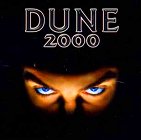 It’s been nearly five years since it first hit PCs (which few people could have missed, given that a marathon Sci-Fi Channel airing of David Lynch’s Dune was sponsored by Electronic Arts in support of the release), and despite all the good stuff we’ve gotten from both game developer Westwood Studios and their in-house music guru Frank Klepacki, Dune 2000 is still my favorite PC strategy game – and still my favorite computer game soundtrack.
It’s been nearly five years since it first hit PCs (which few people could have missed, given that a marathon Sci-Fi Channel airing of David Lynch’s Dune was sponsored by Electronic Arts in support of the release), and despite all the good stuff we’ve gotten from both game developer Westwood Studios and their in-house music guru Frank Klepacki, Dune 2000 is still my favorite PC strategy game – and still my favorite computer game soundtrack.
Klepacki does invoke Toto’s groundbreaking rock-orchestral score in places, mainly in the use of specific instruments such as percussion and electric guitar. But the vast majority of the music from Dune 2000 isn’t trying to be an extension of the film (which is sometimes more than we can say for the game’s cinematic cut scenes), it’s a sweeping, atmospheric and stunningly original movie-quality soundtrack. Some of the music’s  electronics almost steer it into the abstract, sounding in a few places like some of the better tracks from Evan Chen’s soundtrack from Crusade. It’s sinister, mysterious, and utterly appropriate to the game’s action. Even separated from the game itself, Klepacki’s music makes for a compelling listen. I highly recommend both the game and the music – they’re still among Westwood’s all-time best.
electronics almost steer it into the abstract, sounding in a few places like some of the better tracks from Evan Chen’s soundtrack from Crusade. It’s sinister, mysterious, and utterly appropriate to the game’s action. Even separated from the game itself, Klepacki’s music makes for a compelling listen. I highly recommend both the game and the music – they’re still among Westwood’s all-time best.
- Menu Theme (0:52)
- The Ambush (4:14)
- Attack On Arrakis (4:03)
- The Atriedes Gain (4:16)
- Enter The Ordos (5:13)
- Fight For Power (5:51)
- The Fremen (4:31)
- Harkonnen Battle (4:16)
- Land Of Sand (5:03)
- Plotting (4:32)
- Robotix (4:10)
- Rise Of Harkonnen (3:37)
- The Soldiers Approach (4:01)
- Spice Scouting (5:10)
- Under Construction (4:32)
- The Waiting Game (4:13)
- Score (2:05)
Released by: Westwood Studios / Electronic Arts
Release date: 1998
Total running time: 70:39
Listen To What The Man Said
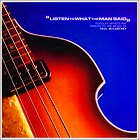 “What’s this?” I asked. “A Paul McCartney tribute album benefitting cancer charities and featuring the Finn Brothers? Sign me up!”
“What’s this?” I asked. “A Paul McCartney tribute album benefitting cancer charities and featuring the Finn Brothers? Sign me up!”
Actually, this nice little selection, proceeds from which go toward the fight against breast cancer, has many good covers of Macca’s post-Beatles best. Owsley kicks things off with a picture-perfect reading of “Band On The Run” which doesn’t stray very far from the original Wings recording. SR-71 turns “My Brave Face” – one of my favorite latter-day McCartney solo tunes simply by virtue of the fact that it isn’t “Hope & Deliverance” – into a gleeful hard-rock thrash. Semisonic also faithfully replicates “Jet”, rocking it out a bit but not so much that it’s unrecognizable. The Virgos give a similar treatment to “Maybe I’m Amazed”, while the Merrymakers punch up “No More Lonely Nights” (another personal favorite) a bit. Some of the other renditions fly under the radar a bit – Matthew Sweet’s “Every Night” for one.
And as for Tim and Neil Finn? It pains me to say it, but their cover of “Too Many People” is a mess – it sounds like an unrehearsed one-take-and-that’s-it wonder, without much effort. The arrangement isn’t organized, the sound quality isn’t even up to the standards of the brothers’ admittedly (and intentionally) lo-fi Finn album, and the vocals just smack of a cover band that’s been asked to play something they’d mostly forgotten. Sad to say, the Finn Brothers, who drew my attention to this collection, turned out to be its biggest disappointment. I was stunned. I was also looking forward to the They  Might Be Giants cover of “Ram On”, but it wasn’t so much disappointing as just inscrutably cryptic in its new arrangement.
Might Be Giants cover of “Ram On”, but it wasn’t so much disappointing as just inscrutably cryptic in its new arrangement.
Overall, a nice set – and one that truly turned my expectations on ear by introducing me to some excellent new artists while the known quantities gave me a wee bit of a let-down.
- Band On The Run – Owsley (5:14)
- My Brave Face – SR-71 (3:00)
- Junk – Kevin Hearn, Steven Page and Stephen Duffy (2:56)
- Jet – Semisonic (4:15)
- No More Lonely Nights – The Merrymakers (4:11)
- Let Me Roll It – Robyn Hitchcock (4:21)
- Too Many People – Finn Brothers (3:43)
- Dear Friend – The Minus 5 (4:45)
- Every Night – Matthew Sweet (2:56)
- Waterfalls – Sloan (4:21)
- Man We Was Lonely – World Party (2:59)
- Coming Up – John Faye Power Trip (3:43)
- Maybe I’m Amazed – Virgos (4:14)
- Love In Song – The Judybats (4:04)
- Warm And Beautiful – Linus of Hollywood (3:08)
- Ram On – They Might Be Giants (2:40)
Released by: Oglio
Release date: 2001
Total running time: 60:30
Command & Conquer: Renegade
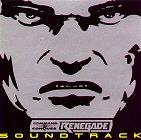 The Command & Conquer games are loaded down with so many obedient soldiers under the player’s control, how could a game be made about any one of them? The answer’s easy: make a game about the one soldier you don’t see in the C&C games. A loose-cannon, gun-totin’ badass. And that’s what Westwood’s first-person blast-fest Command & Conquer: Renegade is all about.
The Command & Conquer games are loaded down with so many obedient soldiers under the player’s control, how could a game be made about any one of them? The answer’s easy: make a game about the one soldier you don’t see in the C&C games. A loose-cannon, gun-totin’ badass. And that’s what Westwood’s first-person blast-fest Command & Conquer: Renegade is all about.
For the music for Renegade, veteran Westwood composer Frank Klepacki goes in two directions at one: back to the original theme from Command & Conquer, and forward for some chunky, hybrid heavy metal/techno music befitting the baddest of the bad. When you have a track called “Got A Present For Ya” in a soundtrack from a game about a heavily armed rogue soldier, you can probably guess this  won’t be the soundtrack from On Golden Pond. This isn’t to say that every cue is top-heavy with action, though – “Sniper” and “Beach” are a couple of good examples of this.
won’t be the soundtrack from On Golden Pond. This isn’t to say that every cue is top-heavy with action, though – “Sniper” and “Beach” are a couple of good examples of this.
The reworkings of the original C&C theme are a welcome return, bringing the whole thing full-circle and giving it the feel of belonging to a larger saga.
- Command & Conquer (2:58)
- Got A Present For Ya (2:21)
- Sniper (3:18)
- Act On Instinct (3:31)
- Stomp (2:55)
- (Untitled Track) (3:57)
- Sneak Attack (3:50)
- Move It (2:04)
- Dogfight (4:42)
- Packing Iron (3:22)
- Industrial Ambient (4:00)
- Beach (3:01)
- Fight Win Prevail (3:36)
- Ammo Clip (3:18)
- In Line Of Fire (3:57)
Released by: Westwood Studios / Electronic Arts
Release date: 2002
Total running time: 50:50
Command & Conquer: Tiberian Sun
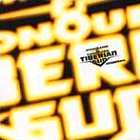 It may seem silly to snatch up the music of a game I don’t even own (honestly, I’m not sure my system could handle it), but sometimes it’s worth it. Frank Klepacki carries on the proud, if unorthodox, tradition of tracking a wargame with some serious techno beats that wouldn’t be out of place in the club scene. The smooth groove of “Lone Trooper” and the slow-building jam of “Scouting” are some of the finest techno cuts I’ve heard, game or no game. “Mutants” kicks off with the slimiest slice of modern funk I’ve heard in a long time, and the menacing “Approach” track echoes the ticking clock percussion of some of the better cues from John Williams’ JFK score. “What Lurks” is a bit reminiscent of
It may seem silly to snatch up the music of a game I don’t even own (honestly, I’m not sure my system could handle it), but sometimes it’s worth it. Frank Klepacki carries on the proud, if unorthodox, tradition of tracking a wargame with some serious techno beats that wouldn’t be out of place in the club scene. The smooth groove of “Lone Trooper” and the slow-building jam of “Scouting” are some of the finest techno cuts I’ve heard, game or no game. “Mutants” kicks off with the slimiest slice of modern funk I’ve heard in a long time, and the menacing “Approach” track echoes the ticking clock percussion of some of the better cues from John Williams’ JFK score. “What Lurks” is a bit reminiscent of  Klepacki’s best work from Dune 2000. While Tiberian Sun itself didn’t get the warmest reception from the PC gaming community (as well as a few Command & Conquer purists who balked at the transition from overhead 2-D graphics to a 3-D look), the soundtrack is right on the money – whether you’re listening to it in the car or blasting away at the legions of NOD.
Klepacki’s best work from Dune 2000. While Tiberian Sun itself didn’t get the warmest reception from the PC gaming community (as well as a few Command & Conquer purists who balked at the transition from overhead 2-D graphics to a 3-D look), the soundtrack is right on the money – whether you’re listening to it in the car or blasting away at the legions of NOD.
- Timebomb (2:07)
- Pharotek (4:41)
- Lone Trooper (4:42)
- Scouting (4:17)
- Infrared (4:31)
- Flurry (4:15)
- Mutants (4:15)
- Gloom (4:01)
- Heroism (4:03)
- Approach (4:43)
- Dusk Hour (4:18)
- The Defense (4:05)
- Mad Rap (4:32)
- Valves (4:22)
- What Lurks (5:17)
- Score (1:49)
Released by: Westwood Studios / Electronic Arts
Release date: 1999
Total running time: 65:58

